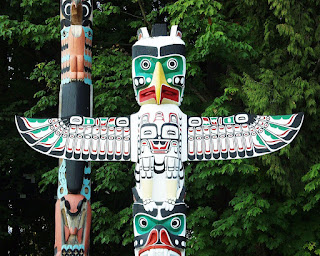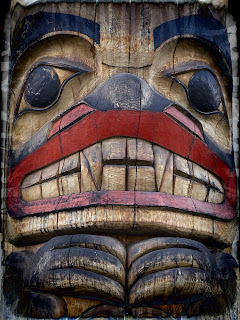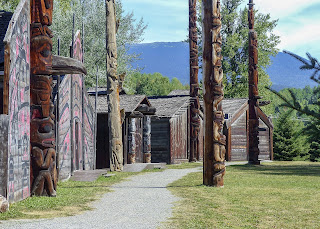Nestled within the vast landscapes of Canada lies a tapestry of rich cultures, ancient traditions, and a resilient spirit—the Indigenous Peoples of Canada. With a history spanning thousands of years, these diverse communities have left an indelible mark on the country's heritage.
From the Inuit in the Arctic to the Haida on the West Coast, and the Mi'kmaq in the East, each Indigenous group carries a unique identity and a profound connection to the land. In this article, we embark on a journey to explore the captivating culture, profound history, and contemporary issues faced by Canada's Indigenous peoples, as well as their significant contributions to the nation's identity.
Ancient Heritage and Traditions
The roots of Canada's Indigenous peoples can be traced back to time immemorial. Through oral storytelling, art, and cultural practices, they have preserved their history, traditions, and spiritual beliefs. Elders play a pivotal role in passing down knowledge, and rituals are often centered around nature and seasonal cycles. Indigenous languages, once threatened by colonization, are now being revitalized to preserve this invaluable cultural legacy.
Contributions to Canadian Culture
Canada's cultural identity is intricately woven with Indigenous influences. Art forms like totem poles, birch bark biting, and Inuit throat singing have become symbols of national pride. Additionally, Indigenous cuisines, such as bannock and wild game, have found their way into mainstream culinary experiences. The fusion of Indigenous and contemporary arts and music has also shaped the vibrant cultural landscape of the nation.
Dark Chapters of History
Tragically, Canada's history is marked by the painful legacy of colonization, which had devastating consequences for Indigenous communities. The residential school system, established with the intention of assimilation, forcibly separated children from their families, leading to cultural erosion, trauma, and intergenerational effects. Acknowledging and understanding this dark chapter is essential for reconciliation and healing.
The Journey to Reconciliation
In recent decades, Canada has taken significant steps towards reconciliation with Indigenous Peoples. The Truth and Reconciliation Commission (TRC) was established to hear testimonies from survivors of the residential school system and offer a path towards healing. The process has led to the adoption of the United Nations Declaration on the Rights of Indigenous Peoples, a significant milestone in recognizing Indigenous rights and sovereignty.
Contemporary Issues and Challenges
Despite progress, contemporary challenges persist for Indigenous communities. Issues such as poverty, inadequate housing, and limited access to healthcare and education disproportionately affect these populations. Environmental concerns, such as land rights and resource extraction, also pose threats to Indigenous territories and traditions. Indigenous women face higher rates of violence and missing persons cases, drawing attention to the need for greater support and protection.
Cultural Revitalization and Empowerment
In the face of adversity, Indigenous communities are embracing cultural revitalization and empowerment. Indigenous-led initiatives promote language immersion programs, traditional healing practices, and land stewardship efforts. Collaborations between Indigenous artists and non-Indigenous creators are fostering cross-cultural understanding, while Indigenous-owned businesses contribute to economic empowerment.
In conclusion, embracing Canada's Indigenous Peoples is an imperative journey towards understanding, empathy, and unity as a nation. Their diverse cultures, ancient heritage, and profound contributions to Canada's identity deserve recognition, celebration, and preservation. The rich tapestry of Indigenous traditions, art forms, and spiritual beliefs has left an indelible mark on the country's cultural landscape, inspiring a shared sense of pride and belonging.
However, the path to reconciliation cannot be taken without acknowledging the dark chapters of history, characterized by colonization and the painful legacy of the residential school system. The journey towards reconciliation demands unwavering commitment to truth, healing, and understanding. By addressing the contemporary challenges faced by Indigenous communities, such as poverty, limited access to education and healthcare, and environmental threats, Canada can foster a more equitable and inclusive society for all its citizens.
Cultural revitalization and empowerment are crucial facets of this transformative process. Collaborative efforts between Indigenous and non-Indigenous communities, coupled with support for Indigenous-led initiatives, enable cross-cultural understanding and contribute to the preservation of invaluable traditions. Strengthening Indigenous languages, embracing traditional healing practices, and upholding land stewardship efforts demonstrate a commitment to preserving and nurturing the essence of Indigenous culture.
Embracing Canada's Indigenous Peoples is not merely an act of recognition but a shared responsibility to rectify past injustices, honor ancestral wisdom, and pave the way for a brighter, more inclusive future. It is a journey that requires active participation, advocacy, and solidarity from all Canadians. By acknowledging the resilience, heritage, and contributions of Indigenous Peoples, Canada can continue its path towards reconciliation and foster a society where diversity is cherished, and all citizens are empowered to thrive. Let us embark on this journey together, embracing the wisdom of the past and the hope of a united future.





.jpg)


No comments:
Post a Comment